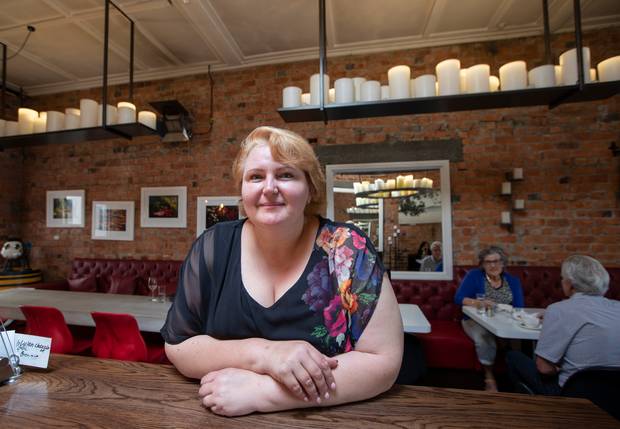It is already clear that employers will be significantly impacted by legislation changes in 2019. The Government is consulting on proposals that, if they come into force, will dramatically affect the process around employer-assisted temporary work visas.
Download the Restaurant Association’s submission on the proposals here.
The Government says the proposals have two strategic objectives: firstly, for employers to place more New Zealanders into jobs (which help businesses to grow and thrive, and result in better jobs for New Zealanders); and secondly that temporary migrant workers, when they are employed, are not exploited and have wages and conditions that are consistent with New Zealand values.
The proposed changes include:
- introducing a new framework for all employer-assisted temporary work visas which will be employer-led, rather than migrant-led,
- replacing the Essential Skills in Demand Lists with Regional Skills Shortage Lists
- introducing sector agreements with sectors which rely heavily on migrant labour
- improving alignment of the immigration, welfare and education systems.
As indicated above, one of the critical changes the proposals would introduce is replacing the current essential skills in demand lists. However, it will affect all skilled and lower-skilled temporary migrant workers and employers across the six employer-assisted temporary work visa categories: Essential Skills including the Essential Skills in Demand Lists (ESID), Approval In-Principle, Talent (Accredited Employer), Work to Residence – Long-term Skill Shortage List Occupation, Silver Fern (Practical Experience), Silver Fern (Job Search).
What are employer-assisted temporary work visas?
Around 20 per cent (47,000) of the 230,000 temporary work visas issued in 2017/18 were employer-assisted, where an employer can demonstrate through labour market tests that there are no suitable domestic workers available. The Government says (and most employers would agree) that the current system is complex and does not respond sufficiently to sectoral or regional differences in the labour market. The new framework will combine the six visa categories into one and will switch from being migrant-led to be employer-led. Overall, the proposals will ensure that access to work visas is better matched to where there are genuine and high skill needs, and that the system provides more incentives and support for businesses to employ more New Zealanders.
What impact will the proposed framework have on employers?
The Government says that the changes as a whole will provide more certainty for employers who meet the required standards, make for faster processing for employers hiring subsequent migrants, and support better compliance and assurance processes. The new framework would initially require more upfront investment for most employers however this is balanced with longer-term ease and certainty.
Download the RA submission here.
In addition, members can access a free webinar recording of the update held by the RA on 25 March – Update on Employer Assisted Visas and Proposed Changes. Go to the shop, to access your recording.
Further information:
Following is a short overview of some of the key changes:
The gateway framework
All applications for the new visa category would be processed through a new gateway framework:
- The employer gate;
- The job gate where checks make sure no Nzer is able to fill the job the employer is recruiting for; and
- The migrant gate where checks are made on a migrant worker’s identity, health, character and capability.
Employer accreditation
Central to the new frame-work is that it is employer-led rather than migrant-led. This means that all employers would need to be approved or accredited before they could recruit migrant workers. It is proposed that compulsory employer accreditation is introduced for all employers who want to recruit temporary migrant workers. The Restaurant Association’s biggest concern here is the cost that employers will be faced with as a result of the new accreditation programme. New fees would be introduced and would include a transfer of some costs from migrants to employers, as well as a ‘more general increase in fees’ to reflect accreditation requirements.
There will be three different accreditation groups with different standards, incentives and duration – standard accreditation, labour hire company accreditation and premium accreditation. Accreditation will require employers to demonstrate that their business practices:
- Incentivise training and upskilling of New Zealanders
- Put upward pressure on wages and conditions
- Meet minimum immigration and employment regulatory standards to minimise the exploitation of migrant workers
- Maintain the integrity of the immigration system
One of the Restaurant Association’s biggest concerns here is the cost that employers may be faced with as a result of the new accreditation programme. New fees would be introduced and would include a transfer of some costs from migrants to employers, as well as a ‘more general increase in fees’ to reflect accreditation requirements.
Many employers in the tourism and hospitality sector are small business and we have concerns that these additional costs may result in them being ‘locked out’ from using migrant workers forcing them to scale back their business activity or even close. In our submissions we are actively campaigning for alternatives to employers bearing additional costs.
We do have concerns that the level of compliance placed on employers under the premium accreditation is beyond the resources and capability of many smaller businesses and we are advocating in our submissions that the threshold for requiring premium accreditation should be increased to more than 10 employer-assisted migrant workers. It is currently being proposed at more than 5.
Remuneration thresholds adjusted
Another benefit is the proposal that no labour market test will be needed for workers paid a sufficiently high remuneration, although as an industry sector with generally lower than average wages, it remains to be seen if many empoyers will be able to benefit from this proposal. The Government generally consider that the higher the remuneration, the higher the skill level. It is proposed that the highly paid threshold is:
- 150 per cent of the national median income (currently $25.00 per hour or $52,000 annually) for premium accredited employers; or
- 200 per cent for all other employers.
Regional skills lists and sector agreements
While the Restaurant Association considers that our skill shortages generally apply across all regions, discussion is also being invited to address the considered need to be more responsive to labour market challenges at regional level. This includes developing a greater understanding of the different needs of regions and sectors and of the mechanisms and initiatives that are already in place.
The skills shortage lists will be recast by region when they are published next in April 2019 and renamed as Regional Skills Shortages (RSS) lists. The Government says this will better reflect the skill shortages that exist in the regions and provide a stronger signal to temporary migrants of opportunities in regional areas.
Sector agreements are also proposed to be negotiated with representative industry bodies, including the Restaurant Association. Once in place it is proposed the agreements will be made compulsory for employers seeking to recruit migrants in that sector.
The agreements aim to provide certainty for employers in industries, like the hospitality industry, that rely heavily on migrant workers. In return for that certainty, employers will need to make commitments including the commitment to employ more New Zealanders over time and reduce their reliance on migration. The agreements would set out specific occupations covered by the agreement, employer accreditation standards, how the labour market test will be applied, required wages and conditions, caps on the total numbers of migrant workers that can be recruited, training commitments and any special regional or other considerations. Of benefit to the hospitality industry, this would also address situations where standard visa application processes and the ANZSCO framework don’t adequately fit the skill and occupation structure of the sector.
The agreements would last for three years and then be renegotiated to reflect changing conditions. Consultation for the tourism and hospitality sector is proposed to get underway in mid-2019 with the expectation that the agreements could come into effect by early 2020.
Implementation
Implementation timeframes for the new gateway framework are aggressive, with final decisions announced by Government in mid-2019 and some proposals to be implemented as early as August 2019.
The sector agreements for the tourism and hospitality sector will begin negotiation in mid-2019 with the expectation that the agreements could come into effect by early 2020. The gateway framework would be fully implemented between April and June 2020
We have concerns about the implementation timeframes, in particular:
- Whether MBIE has the capacity to implement the changes, for example, processing the accreditation applications in reasonable timeframes;
- The short timeframes for MBIE to consider sector feedback and develop final policy proposals.
- The ability to negotiate, and implement, sector agreements within the prescribed timeframes.
The Restaurant Association welcomes a review of the current visa system, as feedback from members is that change is needed. We have been actively advocating for changes that assist our member businesses with the least compromise. Consultation on the proposals is open until March, 2019 to all individuals, groups and organisations. Final decisions will be announced by mid-2019. with the intention that the gateway framework is operational by mid-2020.














